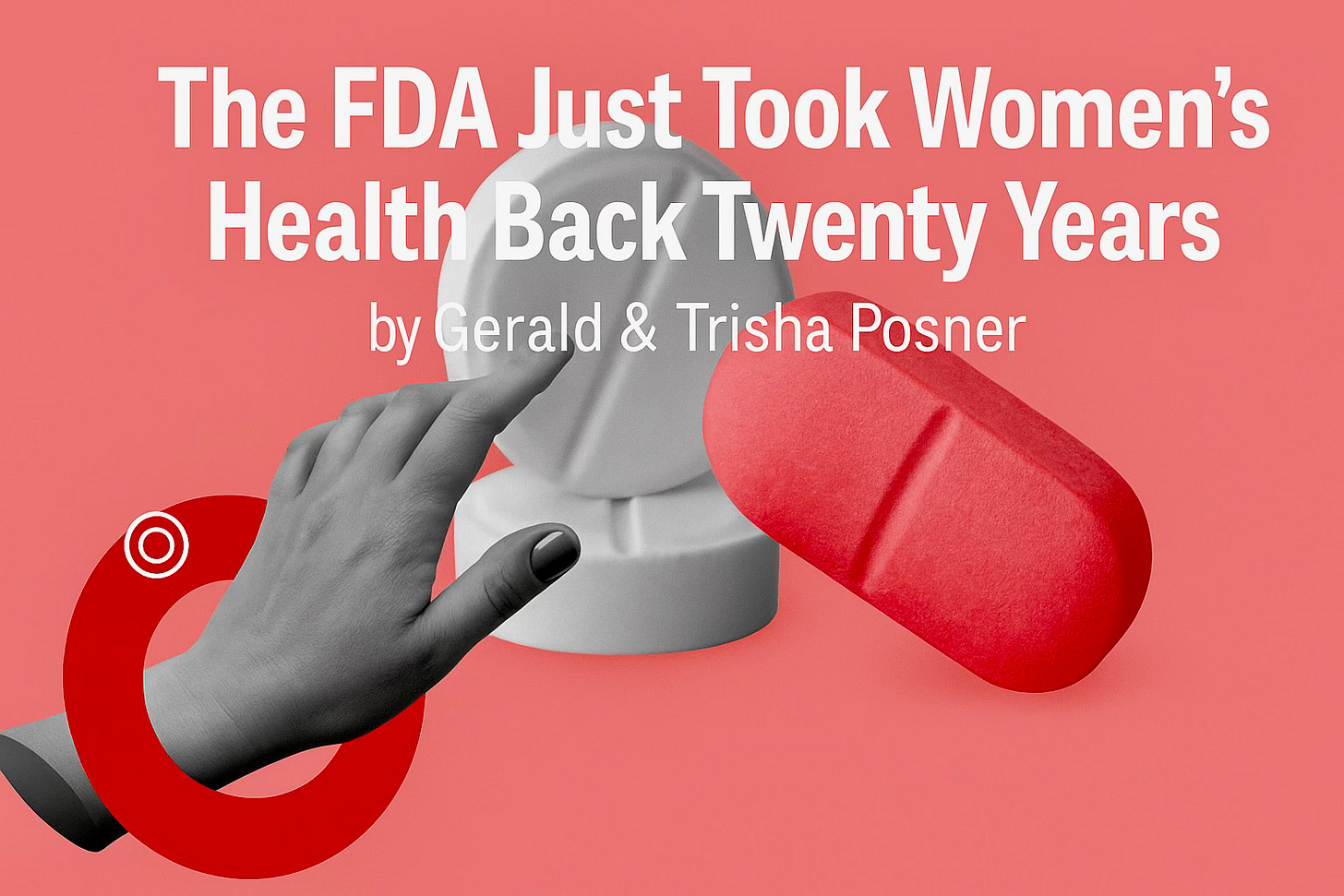How the FDA Just Took Women’s Health Back Twenty Years
By erasing long-standing safety warnings on hormone therapy, the FDA just handed Big Pharma a major win—and passed the risk to women.
Dr. Marty Makary, the FDA’s commissioner, announced yesterday that the agency will remove the black-box warning from all estrogen-based hormone-replacement therapy (HRT) products. New labels will instead emphasize that HRT may offer long-term health benefits if begun within ten years of the onset of menopause.
That change overturns more than twenty years of established medical guidance that began after the Women’s Health Initiative (WHI) halted its massive clinical trial in 2002. The WHI found that HRT significantly increased the risks of blood clots, strokes, endometrial cancer, and breast cancer.
Makary framed his reversal as a long-overdue correction. “The long-term health benefits have been largely misunderstood,” he said. “Hormone replacement therapy may improve the health outcomes of women at a population level more than any other intervention, arguably with the exception of antibiotics or vaccines.” He even added that he wished his own mother had benefited from HRT when she went …






